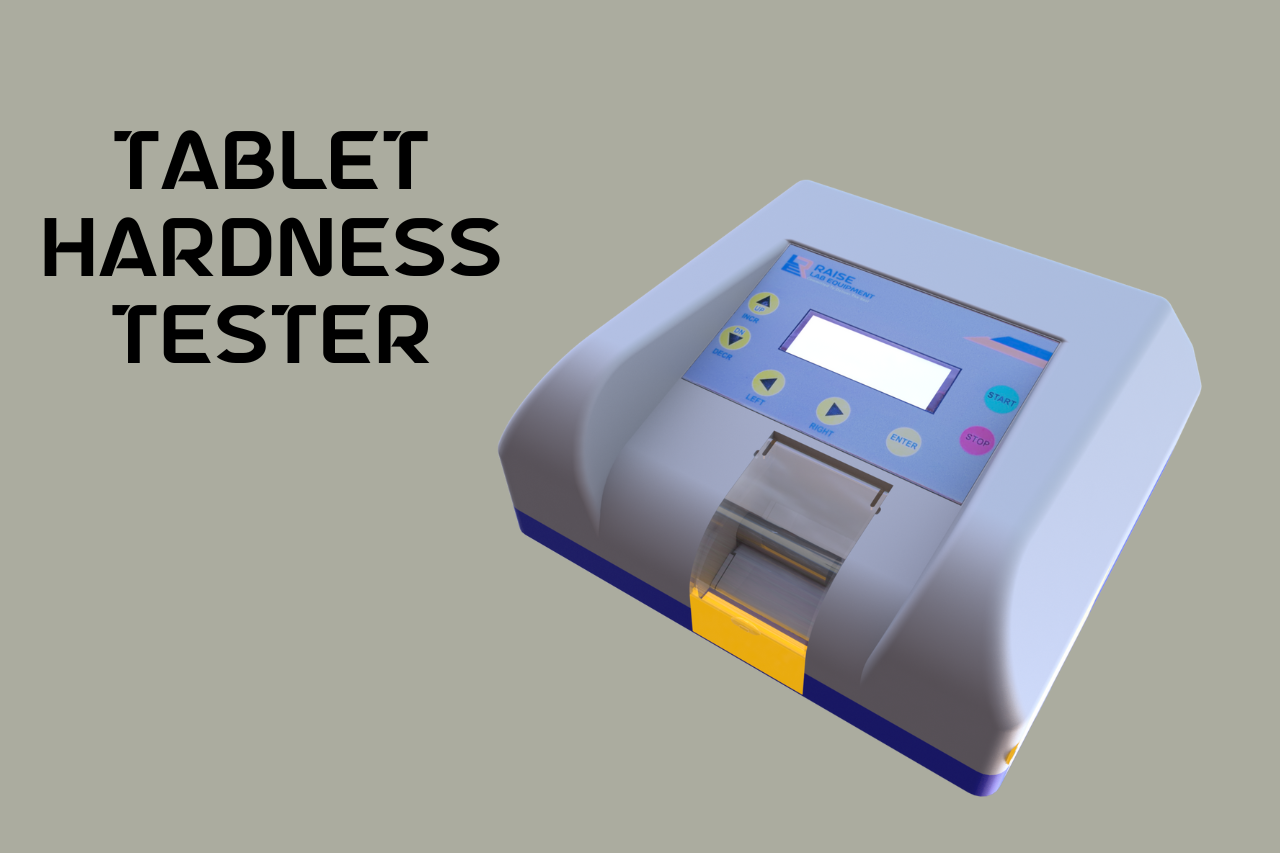In the pharmaceutical industry, tablet quality is paramount. One critical aspect of quality control is the hardness of the tablets, which affects their integrity, dissolution, and overall effectiveness. Tablet hardness testers play a vital role in this process, and calibration is essential to ensure these instruments provide accurate and reliable measurements. This article explores the significance of calibration in tablet hardness testing and how it contributes to product quality.
Understanding Tablet Hardness
Tablet hardness refers to the force required to break a tablet under compression. It is an essential parameter that influences various aspects of a tablet’s performance, including:
- Dissolution Rate: Hard tablets may dissolve slowly, leading to delayed therapeutic effects, while overly soft tablets may crumble, affecting dosing and efficacy.
- Mechanical Integrity: Proper hardness ensures that tablets can withstand handling and transport without breaking or chipping.
- Patient Compliance: Tablets that are too hard may be difficult for patients to swallow, while those that are too soft may not hold their shape, leading to dissatisfaction.
Given these factors, accurately measuring tablet hardness is crucial for maintaining product quality and ensuring compliance with regulatory standards.
The Importance of Calibration
Calibration is the process of adjusting the output or indication of a measuring instrument to ensure its accuracy against a recognized standard. For tablet hardness testers, calibration is vital for several reasons:
- Accuracy and Precision: Regular calibration ensures that the hardness tester provides precise and reliable measurements. Any deviation from the standard can lead to incorrect assessments of tablet hardness, compromising product quality.
- Regulatory Compliance: The pharmaceutical industry is heavily regulated, and manufacturers must adhere to strict quality control guidelines. Organizations such as the United States Pharmacopeia (USP) and the Indian Pharmacopeia (IP) often mandate the calibration of testing equipment. Failure to comply can result in legal consequences and product recalls.
- Quality Assurance: Calibration helps maintain consistent product quality. By ensuring that hardness measurements are accurate, manufacturers can confidently assess whether their tablets meet the required specifications. This consistency is crucial for building trust with healthcare professionals and patients.
- Identifying Equipment Malfunctions: Over time, measuring instruments can drift out of calibration due to wear and tear, environmental factors, or improper use. Regular calibration helps identify and rectify these issues before they lead to significant production problems or quality defects.
- Enhancing Product Development: In research and development, precise measurements of tablet hardness are essential for formulating effective drug delivery systems. Calibration allows researchers to fine-tune their formulations and optimize the hardness characteristics of their tablets.
The Calibration Process
Calibrating a tablet hardness tester involves several steps:
- Use of Standard Weights: Calibration typically requires the use of certified standard weights that are traceable to national or international standards. For instance, a 5 Kg weight is commonly used to validate the accuracy of the hardness tester.
- Setting Up the Tester: The tablet hardness tester should be set up according to the manufacturer’s instructions. This may involve ensuring that the instrument is level, clean, and free from any debris that could affect measurements.
- Performing Calibration Tests: The tester is operated using the standard weight, and the readings are compared against the expected values. Any discrepancies should be noted and adjusted according to the manufacturer’s calibration procedure.
- Documentation: The calibration process, including the date, the individual performing the calibration, and the results, must be documented. This documentation is crucial for compliance purposes and serves as a record of the equipment’s accuracy over time.
- Frequency of Calibration: The frequency of calibration may depend on the specific usage of the hardness tester and the regulatory requirements. Typically, it is recommended to calibrate the equipment at regular intervals or whenever there is a significant change in the testing environment.
The Role of Raise Lab Equipment
Among the various tablet hardness testers available in the market, the Raise Lab Equipment Model RHT-100 stands out as a premier choice for pharmaceutical and research laboratories. This advanced instrument is designed to ensure precision in measuring tablet hardness while adhering to both USP and IP standards.
Key Features of the RHT-100 Tablet Hardness Tester:
- User-Friendly Interface: The RHT-100 is equipped with a menu-driven operation and a PC-compatible keyboard, making it easy to use for operators of all experience levels.
- Durable Construction: Built with high-quality materials, the RHT-100 is designed for longevity and reliability in demanding laboratory environments.
- Comprehensive Measurement Capabilities: The device offers a variety of hardness units, including Newton (N), Kilopond (Kp), Strong Cobb (Sc), and User Defined (UD), accommodating diverse testing needs.
- Efficient Sample Management: The RHT-100 can store and recall up to 50 different product recipes, streamlining the testing process and enhancing efficiency in quality control.
- Calibration and Verification: The device features a simple calibration process using a certified 5 Kg weight, ensuring that users can easily maintain the accuracy of their measurements.
- Advanced Reporting: With various report generation capabilities, the RHT-100 supports documentation for compliance and quality assurance.
- Print Compatibility: Connecting with dot matrix, desk jet, and laser jet printers allows for easy documentation and sharing of results.
Conclusion
Calibration is indispensable for pharmaceutical companies using tablet hardness testers to ensure product quality. By investing in reliable equipment like the Raise Lab Equipment Model RHT-100 and adhering to proper calibration procedures, manufacturers can enhance their quality control processes and ultimately deliver safer, more effective medications to consumers. The RHT-100 not only meets stringent industry standards but also empowers laboratories to conduct precise and reliable hardness testing, contributing to improved product quality and patient satisfaction.


